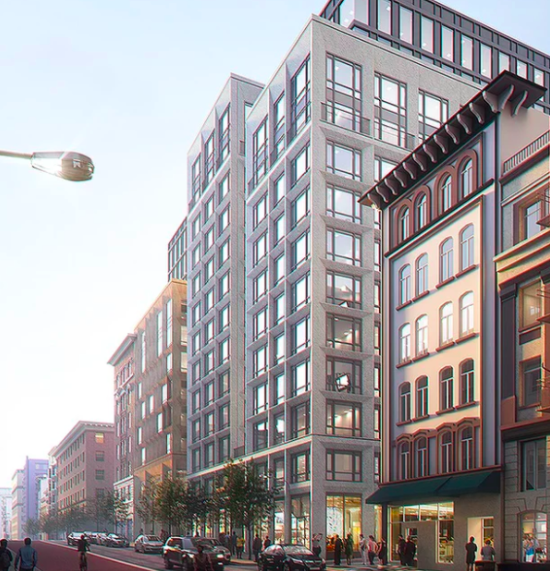The Board of Supes rejected a plan for tech dorms in the Tenderloin yesterday, setting up a challenge for private housing developers who increasingly want to build what’s known as “group housing.”
That term is badly defined in the Planning Code, and potentially creates a massive loophole for market-rate short-term rentals to replace family housing units.

And the supes, by unanimously overruling the Planning Commission—a very rare move—made it clear that they don’t want to see projects get approved, and then substantially changed afterward.
“This isn’t the only project getting approved and then pulling a big switcheroo,” Sup. Hillary Ronen said.
More important: Sup. Myrna Melgar, a former planning commissioner, said that the need for a developer to make a tidy profit should not drive policy decisions. “That’s not something the city should take on,” she said. “That’s not what should guide an approval for us.”
It’s hard to described what a significant change that would be to city planning policy, which for at least half a century has been driven by the idea of enabling developer profits.
The collective statement of the board is a major defeat for—and effective denunciation of—the City Planning Department and its commission, which had approved the “switcheroo” 4-2.
It could be the start of a rethinking of how the city addresses private developers and the housing crisis. Among other things, the fate of this project was a direct challenge to the Yimby narrative that neighborhood activists and local zoning rules are stifling housing production and keeping prices high.
Help us save local journalism!
Every tax-deductible donation helps us grow to cover the issues that mean the most to our community. Become a 48 Hills Hero and support the only daily progressive news source in the Bay Area.
In this case, the zoning rules didn’t hamper the original project, a 178-unit housing development that was approved with strong community support several years ago. The city’s affordable-housing rules back when it first was approved were pretty limited; the project would have needed only 13 percent affordable units.
What blocked that plan from moving forward—and drove the developer to seek to turn family housing into short-term rentals and tech dorms—was the demands of investment capital. The profits in traditional housing weren’t high enough. And the prices that the developer wanted to charge in rent were so beyond the ability of most Tenderloin households that it wasn’t going to work.
In other words: Right now, the private market has no interest in funding and building the sorts of housing that San Francisco needs. So any strategy that relies on market forces to address the housing crisis is going to fail.
That’s the clear message that the supes seemed to get Tuesday—and that the Planning Commission has ignored.
Allowing more density only works if there’s any chance that it will lead to something remotely resembling affordable housing, even for the “missing middle” that city officials love to talk about. That’s the population earning too much for subsidized housing but too little for the current market-rate units.
Developers are really interested in building short-term rentals in what should be areas served by permanent housing. We saw that in the Castro recently.
Sup. Matt Haney, who represents the district where the project would be built, complained that the unusual and vague definition of “group housing” made this project impossible to support. Since the supes typically defer to their district colleagues, once Haney said he wasn’t going along with the deal, it was effectively over.
Sup. Aaron Peskin described this idea of “group housing”—which includes units with limited kitchen facilities—“this housing is not intended for permanent residents …. It will be short-term or corporate rentals.”
At a median rent of $3,000 a month for a shared unit, which would not allow much room for food storage or preparation, “the residents are going to be people who rely on third-party food delivery,” which of course means more cars and congestion in one of the most congested areas of the city.
San Francisco planners tend to completely ignore the impacts of Uber, Lyft, Doordash, Amazon, and other delivery services when they think about the environmental impacts of new market-rate buildings.
So maybe there’s a new reckoning here. Maybe the planners will get the message: the solution to the housing crisis doesn’t lie with profit-seeking developers. What’s best for the bottom line of speculative capital isn’t what’s best for San Francisco.
Given the current planning staff and commission, I’m probably being wildly optimistic.




